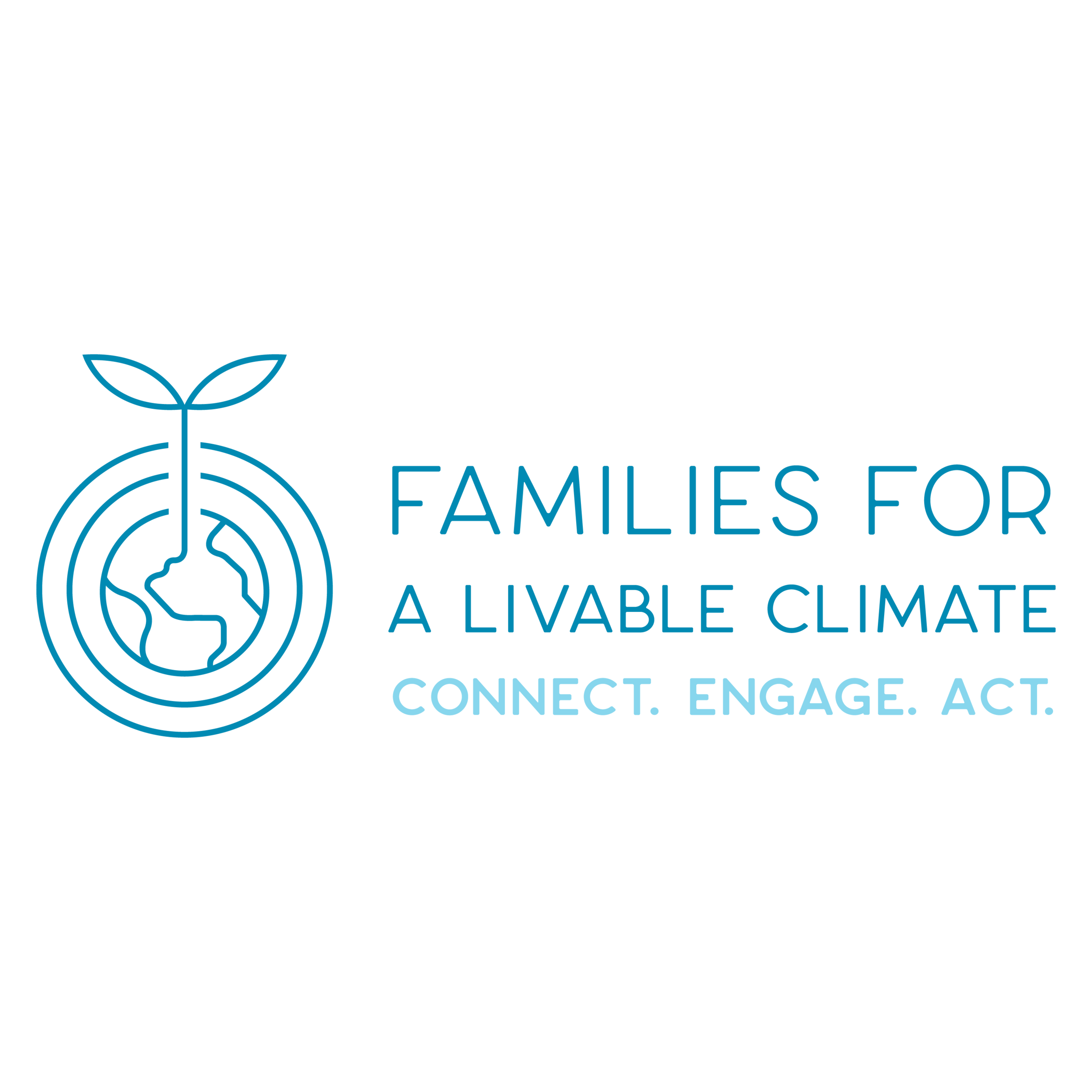For the Common Good
Some of our team at the Common Good Missoula founding event, May 19, 2022.
On Thursday, May 19, we stood proudly with the many other member organizations at Common Good Missoula’s founding event at the Missoula County Fairgrounds. The weather conspired toward cold and windy, but nearly 420 people showed up anyway. It was a phenomenal event realizing years of work to bring together a broad base of community organizations to work for the common good.
Watch this excellent coverage from KPAX-TV:
I was proud that Families for a Livable Climate brought about 25 people to the event, and many of them were involved with making the night happen. Our talented actions and workshops coordinator Penélope Baquero was one of the emcees, along with Tassia Tkatschenko, a key core team volunteer, and our Common Good Missoula liaison.
I spoke to the importance and impact of one-on-one relational organizing in making change. My remarks from the event are below:
Our world is rapidly changing. As a climate organizer who is also a mom, some days I feel powerless, afraid, and alone. Knowing what I know about climate projections if we fail to act, I toss and turn at night, worried about what the world might look like for my daughter, and for all the creatures, places, and people I love.
I grieve the suffering of families around the world whose precious lives have been upended, or cruelly cut short, by tragedy: the global pandemic, extreme heat, raging wildfires, floods, violent hate crimes and war.
Truly, the hardest moments for me sometimes are when my kiddo starts her sentence with “Mama, when I grow up …”
But these are the words that also make me show up, and connect with others to do the same.
That’s why we’re here tonight.
Sharing our fears and anger about how things are, and embracing our hopes for the world as it should be, and then taking action together, are the core components of relational, one-on-one organizing, and the work of Common Good Missoula.
It’s so simple. As humans, we carry with us three simple tools to change our world: Our ability to listen, our ability to empathize, and our ability to tell stories, and connect through our shared experiences.
These tools may be rusty because of the rise of social media, and other divisions. But they’re in our DNA, and we must remember how to use them to build the future we want: They are key to how we build community, how we snuff out ignorance and violence, and how we build power to make change.
Well, that sounds pretty poetic, but why not just focus solely on policy?
Climate is a great example: We have focused a LOT on policy (and we still should) and solutions are all around us. So we have to ask: Why aren’t the policies and solutions being implemented at the scale and speed we need? One reason is that while 72% of people accept that climate change is happening, 65% of people rarely or NEVER talk about it. How can we get policy passed or make big changes in our systems if we the people are not talking about the problem?
Of course, corporations and individuals contributing to this crisis have a LOT of money and power. They’ve successfully politicized the issue and made a LOT of people not want to talk about it, but this silence is deadly.
Without a broad base of support, change won’t happen, and when it comes to climate, or any large issue pressing on our community, that’s not an option for a livable future.
We can build the support we need through one-on-one conversations, offering a space for people to share, be heard, and to move forward with engagement because they feel connected to something larger than themselves–a broader movement toward change.
That’s why Common Good’s organizing model is so powerful. We need to have a LOT of conversations about the world we envision to make it a reality, and that’s why we need all of you.
Our shared future is not yet written. And I don’t know about you, but I am damn sure I’m not leaving it up to corporations, or people in power, to write it.
When my daughter grows up, I want our family to be standing together with others, walking towards the future we envision:
Clean air and water,
Affordable housing and healthcare for all
Safe, clean, and enduring habitats for all
An equitable, regenerative economy, and
A stabilizing climate where all of us, and our living world, can thrive for generations to come.

